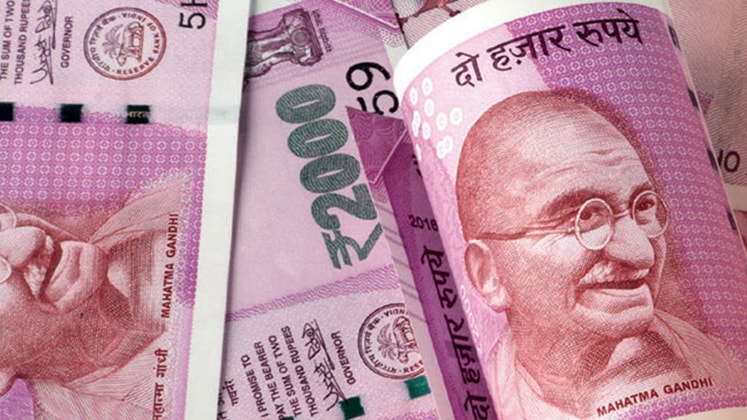Trying to overcome COVID-19, India is now in the second week of lockdown. And as April has started, workers desperately looking for their wages have started receiving the same. Meanwhile, it has been reported that some of the factories (especially in Noida) are not paying full wages to their workers. Especially sectors 62 and 63 where a lot of apparel manufacturing units are operational, some factories have paid wages of 22 days rather than paying for 31 days for the month of March. Even national newspapers have reported about the same quoting some workers.
“When we asked about full wages, factory administrators scolded us and said they wouldn’t pay for more than 22 days. We will complain in this regard to the Government authorities,” said few workers talking to a leading newspaper of Delhi-NCR. Names of any such factories were not disclosed.
Apparel Resources approached various exporters and industry leaders of Noida in this regard. All of them claimed to pay full wages and expressed concerns about how they would pay the wages and salaries for April, as they are facing a harsh financial crunch. Though many factories pay wages around 5th to 7th or 7th to 10th of every month, all are of them said that they will pay full wages to each and every worker.
“It is an ethical as well as legal limitation for all factories no matter whether they are fully compliant or working in the unorganised sector, as Government has issued strict advisories. And no unit would like to spoil its relations with workers on this issue,” says an HR Head of the export house who doesn’t wish to be quoted.
An SME exporter of Noida Uday Sehgal, Director, Mariko, said, “Such claims of not paying full wages are absolutely baseless. We have managed to pay our workers a complete amount even for the days of lockdown. This is a time where we have to understand the severity of the situation and be with our force. They are our pillars and expect our unconditional support at a time of need.” He further added, “Yes, for the month of April, we certainly require a helping hand from the Government. We are not sure of what the repercussions would be once the lockdown is lifted.”
Many apparel exporters have zero cash flow as the whole world is locked and all their payments are stuck. Shipments have been cancelled and/or delayed; payment terms have been revised. “All our expected payments have been delayed by more than 3 months. Undoubtedly, it was very difficult to manage the salaries of March, but somehow, we did. A huge effort to organise salaries was done, but for April, we are clueless and fund-less,” said Uday.
Vivek Saxena – Director, Moissanite Apparels, Noida – who is working with many top brands and retailers is also of the same opinion. “It is a catch-22 situation. The entire industry is reeling under the pressures of cancellations and complete uncertainty of the future also. I think even if companies would bear the cost of salaries for these 8-10 days of lockdown, then what next? Labourers come and leave at their own will, but now at the time of crisis, they all want to be marked ‘present’,” said Vivek, further adding, “We will have to take a very balanced decision between staff and labour. Even State Governments, public sector companies etc. are deducting salaries, then why the pressure is being mounted on private entrepreneurs? Everyone will have to and should bear the partial brunt of this unprecedented crisis being faced the world over.
It is also pertinent to mention here that Bangladesh will extend Tk 50 Billion coronavirus relief package to exporters as bank credit. The loans carrying a 2 per cent interest rate will be repayable in two years with a grace period of six months. The fund can be used only for paying wages and allowances to the workers and other employees.
A well-known industry leader Sanjay Jain, MD, TT Limited, Delhi, insisted similar support from Indian Government for apparel manufacturers for labour and interest cost to sustain and make the losses due to lockdown bearable. “As far as wage deduction is concerned, it will depend from company to company and some of them do not even have money, so how do they pay? Bangladesh has offered a smart solution,” he shared.
Industry insisted to figure out an action plan as exporters are paying salaries from their pockets. Lalit Thukral, President, Noida Apparel Export Cluster (NAEC), who is also running an export unit Maharana of India, informed Apparel Resources, “Despite all challenges, all apparel manufacturers are paying wages as per the law. Everyone is concerned about April’s wages and salaries, but they need not worry as the Government is working on a relief package for the apparel industry, and soon, we will get the same.” He also shared that wages are deposited in workers’ bank accounts, so there is no issue of social distancing in this regard.
As far as the salaries of middle-level management are concerned, Lalit told that it depends from company to company. Things in this regard will be clear in the next few days. However, the HR heads of 3 export houses told all staff from mid-level to senior level will get full salaries for March.
In Coimbatore, KPR Mills, a leading vertically integrated company, has done a commendable job as far wages of workers and their overall support are concerned. The company hasn’t shed any of its 22,000 workers (the majority are women) including 17,500 migrant workers who are all being housed in hostels within the factory premises and following social distancing too.
“About 5,000 of them are from Odisha, while 2,500 belong to Bihar, Assam and Himachal Pradesh, 2,000 to Kerala, Karnataka and Andhra Pradesh, and 8,000 to other districts of TN. We are continuing to give food and accommodation to all the 17,500. The remaining 4,500 are locals coming from within 1-2 hours of travelling distance and who preferred to be with their families,” K P Ramasamy, Chairman of the Group, shared with Indian Express, a leading English daily. Per worker average cost for the company is around Rs. 13,500. That works out to a wage bill of nearly Rs. 30 crore and the same is paid to all its workers on 1st April.







